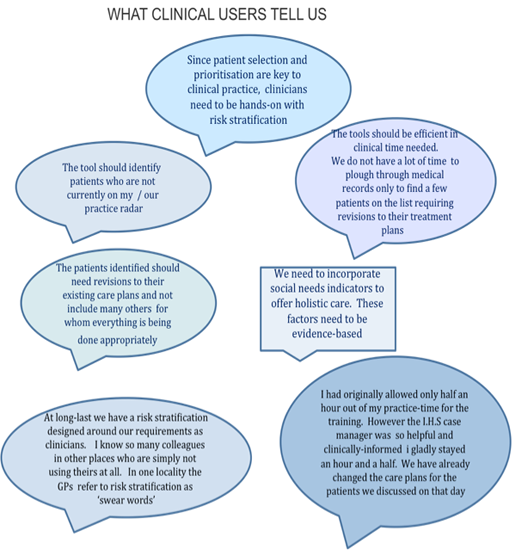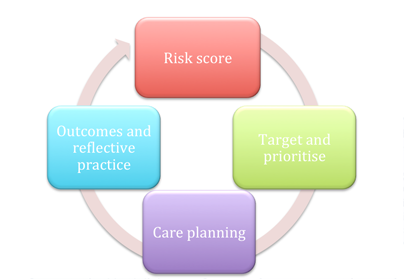Integral Health Solutions Launches new platform for ACGs “iRIS”
Through our partnership with Johns Hopkins, previously vested with Conrane Consulting since 2006, we are excited to announce our new platform for ACGs, iRIS ‘Integral Risk intelligence Solution’.
iRIS represents a major advance on other ACG applications, most of which our consultants have been involved with over the years.
Firstly iRIS has been designed to support the entire care co-ordination pathway within individualised integrated care. New features include:
- Tailored reporting designed by clinicians for use by clinicians in response to feed-back on their specific requirements. Too many risk stratification tools fall into disuse because they have generic reporting functions which don’t integrate with the clinical process. iRIS in contrast is designed to optimise the clinical interface by :
- Allowing the users to sub-set and prioritise patients on criteria relevant to clinical practice.
- When we train clinicians in the use of iRIS, the training is designed by expert case managers and delivered at GP practice-level.
- We offer a ‘train the trainers’ programe to build local capacity in larger deployments.
- Predictor of 30-day readmissions iRIS will easily incorporate the new version of the ACG software which predicts 30-day readmissions.
- Allows the inputting of social care risk factors which are predictive of high health and social care costs.
- Creates an integrated care planning database tailored to the individual patient.
- Supports clinical audit by care co-ordinators and GP practices. This is critical to securing the economic benefit from care co-ordination interventions such as case management.
- The outcomes reporting function aggregates audit data within information governance requirements for commissioners and provider management at the levels of specific practitioners, types of intervention, diagnostic groups etc.

Outcomes reporting This process illustrates whether an intervention is reducing utilisation and costs in both secondary and primary care and therefore delivering an economic benefit. We have developed a set of KPIs – ‘iRIS impact assessment’ which allows comparison of: -
- Patients with a service intervention and those with a similar morbidity profile who are not in receipt of a specific service;
- Patients before, during and after a case management or other care co-ordination programme;
- Comparing the impact of various programmes available locally to inform decisions about investment or disinvestment;
- Comparing sub-groups of patients by practice, practitioner, locality team etc.
- Concurrent and as a minimum quarterly reporting


